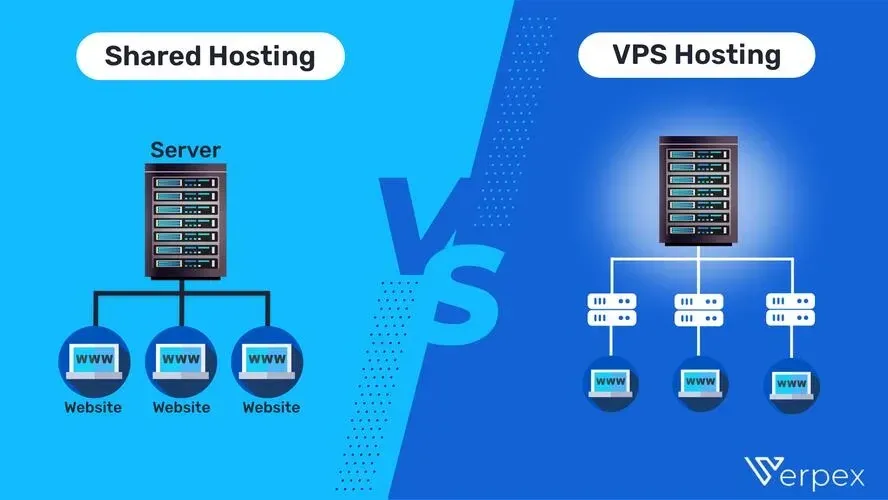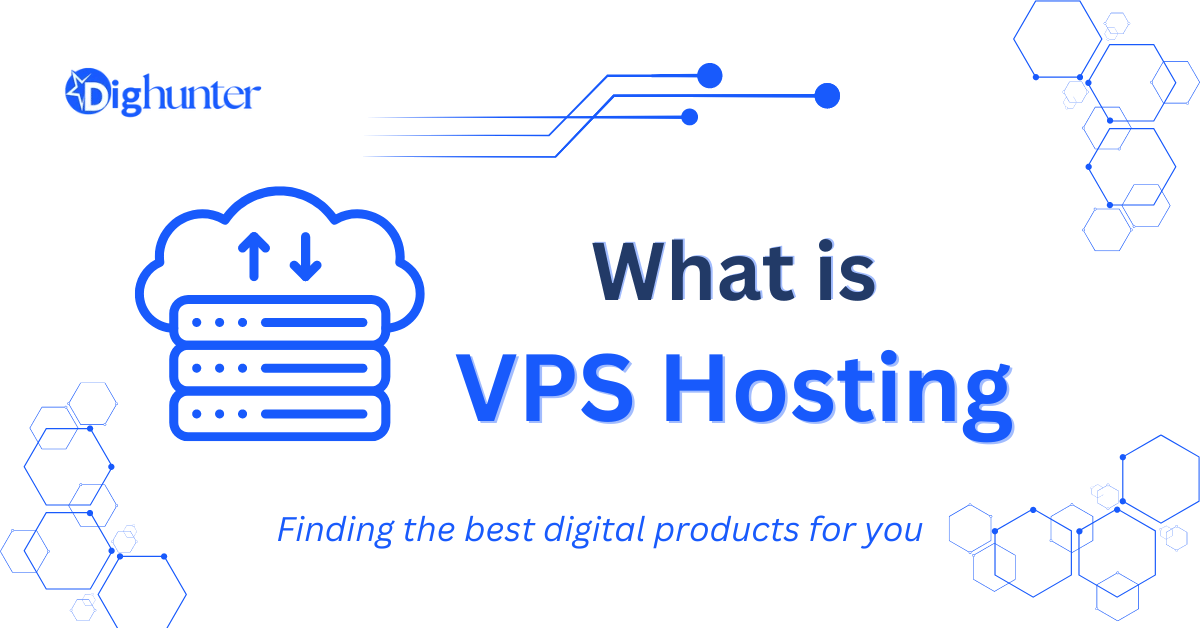VPS Hosting, or Virtual Private Server Hosting, offers a dedicated portion of a server’s resources. It bridges the gap between shared hosting and dedicated hosting.
VPS Hosting provides more control, security, and performance compared to shared hosting. It allocates dedicated resources to users, ensuring stable and reliable performance. Businesses and developers favor the hosting for its flexibility and scalability. Users can install custom software, choose their operating system, and manage server settings.
This hosting type is ideal for growing websites, e-commerce platforms, and applications requiring dedicated resources. With the hosting, you get the benefits of a dedicated server without the high cost, making it a cost-effective solution for many needs.

Credit: www.global-dms.com
➡️ What is VPS Hosting?
Are you searching for reliable web hosting solutions? VPS Hosting might be the perfect answer for you. But what is the Hosting? Let’s dive in and understand this robust hosting solution. VPS stands for Virtual Private Server, a middle-ground between shared hosting and dedicated hosting. It provides the benefits of dedicated hosting while being cost-effective like shared hosting.
Key Features
VPS Hosting comes with a plethora of features that make it an excellent choice for various websites. Here are some key features:
- Scalability: Easily scale your resources as your website grows.
- Dedicated Resources: Get dedicated CPU, RAM, and storage, ensuring optimal performance.
- Root Access: Full control over your server environment with root access.
- Customizability: Install and configure software to meet your specific needs.
- Security: Enhanced security features to protect your data.
Below is a table summarizing the key features:
| Feature | Description |
|---|---|
| Scalability | Easily scale resources as needed |
| Dedicated Resources | Dedicated CPU, RAM, and storage |
| Root Access | Full control with root access |
| Customizability | Install and configure software |
| Security | Enhanced security features |
How It Works
Understanding how VPS Hosting works can help you make an informed decision. Here’s a breakdown:
The hosting uses virtualization technology. A physical server is divided into multiple virtual servers. Each VPS operates independently. You get dedicated resources and full control over your environment.
Here’s how it works in simple steps:
- Virtualization Software: A hypervisor, the virtualization software, divides the physical server.
- Virtual Machines: Each segment acts as an independent virtual machine (VM).
- Dedicated Resources: Each VM gets its own dedicated resources.
- Isolation: VMs are isolated from each other, ensuring security and performance.
- Root Access: Users have root access to configure their VPS as needed.
In summary, VPS Hosting provides a dedicated environment with the flexibility to scale and customize, making it ideal for growing websites.
➡️ Benefits of VPS Hosting
This type of hosting offers numerous benefits for businesses and individuals. It provides a perfect balance between shared hosting and dedicated servers. With VPS hosting, you gain better control, flexibility, and security. This type of hosting is ideal for websites that need more resources and control without the high costs of a dedicated server.
Scalability
One of the biggest advantages of VPS hosting is its scalability. Websites often grow over time, requiring more resources and better performance. The hosting allows you to easily scale your resources up or down based on your needs.
- Flexible Resource Allocation: You can adjust CPU, RAM, and storage as your website demands.
- Pay for What You Need: Only pay for the resources you use, making it cost-effective.
- Easy Upgrades: Upgrading is simple and doesn’t require downtime.
Here’s a table to illustrate the scalability of VPS hosting:
| Resource | Shared Hosting | VPS Hosting | Dedicated Server |
|---|---|---|---|
| CPU | Limited | Scalable | High |
| RAM | Limited | Scalable | High |
| Storage | Fixed | Scalable | High |
With VPS hosting, you enjoy the flexibility to grow your website at your own pace. This ensures your site performs well, even as traffic increases.
Performance
VPS hosting significantly enhances your website’s performance. It offers more dedicated resources compared to shared hosting, ensuring your site runs smoothly.
- Dedicated Resources: You get a specified amount of CPU, RAM, and storage.
- Improved Load Times: Faster load times lead to better user experience.
- Consistent Performance: Unlike shared hosting, your site’s performance doesn’t fluctuate.
Here are some performance benefits of VPS hosting:
- Faster Speeds: Your site loads quickly, which improves SEO rankings.
- Reliable Uptime: Higher uptime ensures your site is always accessible.
- Better Security: Isolated environment means better protection from threats.
Overall, the hosting ensures that your website delivers the best experience to users. It provides faster speeds and greater reliability, making it an excellent choice for growing websites.
➡️ VPS vs Shared Hosting
Choosing between VPS hosting and shared hosting can be tricky. Both have their pros and cons. Understanding these differences helps you make the best decision for your needs. This blog explores the key differences between VPS and shared hosting.
Resource Allocation
Resource allocation is crucial. In shared hosting, multiple websites share one server’s resources. This means your website’s performance can suffer if another site uses too many resources. Here are some features of shared hosting:
- Limited CPU and RAM
- Shared bandwidth
- Common disk space
On the other hand, VPS hosting provides dedicated resources for your website. Even though you share a physical server, virtualization technology allocates specific resources to each VPS user. Features of the hosting include:
- Dedicated CPU and RAM
- Guaranteed bandwidth
- Private disk space
Let’s compare the two types in a table:
| Feature | Shared Hosting | VPS Hosting |
|---|---|---|
| CPU and RAM | Shared | Dedicated |
| Bandwidth | Shared | Guaranteed |
| Disk Space | Common | Private |
Cost Comparison
Cost is a significant factor. Shared hosting is usually cheaper because many users share the same server. It is ideal for small websites or blogs. Typical costs range from $2 to $10 per month.
In contrast, VPS hosting costs more due to dedicated resources. It suits larger websites or those needing better performance. The hosting costs range from $20 to $100 per month.
Here is a cost comparison:
- Shared Hosting: $2 – $10/month
- VPS Hosting: $20 – $100/month
While shared hosting is budget-friendly, the hosting offers better performance. The choice depends on your website’s needs and budget.
➡️ Types of VPS Hosting
Virtual Private Server (VPS) hosting offers the perfect balance between shared hosting and dedicated servers. You get your own isolated environment, ensuring better performance and security. There are two main types of the hosting, each catering to different needs: Managed VPS and Unmanaged VPS.
Managed VPS
Managed VPS hosting is ideal for those who prefer a hands-off approach. The hosting provider takes care of server maintenance, updates, and security. This allows you to focus on your website and business without worrying about technical details.
Here are some key benefits of Managed VPS:
- 24/7 Technical Support: Expert support is always available to resolve any issues.
- Automatic Backups: Regular backups ensure your data is safe.
- Enhanced Security: The provider handles security patches and updates.
- Performance Monitoring: Continuous monitoring ensures optimal performance.
Managed the hosting is perfect for small businesses, bloggers, and anyone who lacks technical expertise. It allows you to enjoy the benefits of VPS without the complexities of server management.
Unmanaged VPS
Unmanaged VPS hosting is designed for those who have technical expertise and prefer full control over their server. You handle all aspects of server management, including updates, security, and backups. This type of hosting offers more flexibility and customization options.
Key advantages of Unmanaged VPS include:
- Cost-Effective: It is usually cheaper than Managed VPS.
- Complete Control: You have full root access to your server.
- Customizable Environment: You can install any software and configure the server as per your needs.
- Learning Opportunity: Great for those who want to learn more about server management.
Unmanaged VPS hosting is suitable for developers, system administrators, and tech-savvy users who want more control and customization options. It provides a cost-effective solution for those who can manage their own server environment.
➡️ Choosing a VPS Provider
Choosing a VPS provider can be a daunting task. With so many options available, it’s crucial to make an informed decision. A VPS (Virtual Private Server) offers a perfect blend of shared and dedicated hosting. It provides more control, flexibility, and power. Let’s explore key factors to consider when selecting your VPS provider.
Reputation
The reputation of a VPS provider speaks volumes about their service. It’s essential to choose a provider with a solid track record. Positive reviews and testimonials indicate reliability. Here are some tips to assess reputation:
- Customer Reviews: Look for reviews on third-party websites. Avoid reviews only on the provider’s site.
- Industry Awards: Check if the provider has received any industry awards. Awards often indicate excellence.
- Uptime Guarantee: Providers with a strong reputation typically offer an uptime guarantee. Look for at least 99.9% uptime.
A reputable provider invests in robust infrastructure. They use top-notch hardware and software to ensure optimal performance. Consider providers who have been in the industry for several years. Longevity often correlates with quality service.
Comparison Table of Reputable VPS Providers:
| Provider | Uptime | Awards |
|---|---|---|
| Provider A | 99.99% | Best VPS Provider 2021 |
| Provider B | 99.95% | Top Hosting Award 2020 |
Support Services
Support services are crucial when selecting a VPS provider. Quality support can resolve issues quickly and efficiently. Here are key aspects to consider:
- 24/7 Availability: Ensure the provider offers round-the-clock support. Problems can occur anytime.
- Multiple Channels: Look for providers offering support via phone, email, and live chat. More options mean better accessibility.
- Knowledge Base: A comprehensive knowledge base is a valuable resource. It allows you to troubleshoot issues independently.
Check the provider’s response time. Fast response times are critical during emergencies. Providers should ideally respond within a few minutes.
Comparison Table of Support Services:
| Provider | Support Channels | Response Time |
|---|---|---|
| Provider A | Phone, Email, Live Chat | Under 5 minutes |
| Provider B | Email, Live Chat | Under 10 minutes |
Invest in a VPS provider with robust support services. Quality support ensures your website remains operational and efficient.

Credit: verpex.com
➡️ Setting Up VPS
Setting up a VPS (Virtual Private Server) can seem daunting, but it’s a rewarding experience. A VPS provides more control, flexibility, and power compared to shared hosting. Whether you’re hosting a website, running applications, or creating a development environment, a VPS can meet your needs. This guide will walk you through the essential steps for setting up your VPS, including initial configuration and security measures.
Initial Configuration
After purchasing your VPS, the first step is the initial configuration. This process ensures your server is ready for use and optimally set up. Here are the key steps:
- Access Your VPS: Use SSH to access your server. You’ll need your server’s IP address and the root password provided by your hosting provider.
- Update the System: Keep your server up-to-date with the latest software and security patches. Use the following commands:
sudo apt update
sudo apt upgrade- Create a New User: For better security, avoid using the root account for regular tasks. Create a new user and grant them sudo privileges:
adduser newuser
usermod -aG sudo newuser- Set Up a Firewall: Protect your server by setting up a firewall. Use UFW (Uncomplicated Firewall) to manage your firewall settings. Enable it and allow necessary ports:
sudo ufw allow OpenSSH
sudo ufw enableSecurity Measures
Securing your VPS is crucial to protect your data and maintain server integrity. Implement these security measures to safeguard your server:
- Disable Root Login: Prevent direct root login to increase security. Edit the SSH configuration file:
sudo nano /etc/ssh/sshd_config- Find the line
PermitRootLoginand change it tono. Save and exit, then restart SSH:
sudo systemctl restart ssh- Use SSH Keys: Enhance security by using SSH keys instead of passwords. Generate a key pair on your local machine and copy the public key to your VPS:
ssh-keygen
ssh-copy-id newuser@your_server_ip- Install Fail2Ban: Protect against brute-force attacks by installing Fail2Ban. It monitors log files and bans IPs with too many failed login attempts:
sudo apt install fail2ban- Enable Automatic Updates: Ensure your server receives the latest security updates automatically. Configure unattended upgrades:
sudo apt install unattended-upgrades
sudo dpkg-reconfigure --priority=low unattended-upgradesFollowing these initial configuration and security steps will set a solid foundation for your VPS. A well-configured and secure VPS is crucial for a stable and reliable server environment.
➡️ Common Use Cases
VPS Hosting offers a versatile solution for many needs. It provides a balance between shared hosting and dedicated servers. Understanding the common use cases of the hosting can help you leverage its full potential. Let’s explore the primary uses of the hosting.
Web Hosting
VPS hosting is perfect for web hosting due to its flexibility and control. It allows you to host multiple websites on a single server. This is ideal for businesses or individuals managing several sites.
Here are some key benefits of using VPS for web hosting:
- Scalability: Easily upgrade resources as your website grows.
- Performance: Dedicated resources ensure faster load times.
- Security: Enhanced security features protect your data.
Many website owners prefer the hosting for its reliability. The control panel provides easy management of server settings. With VPS, you can install custom software and scripts, enhancing your website’s functionality.
| Feature | Benefit |
|---|---|
| Dedicated IP Address | Improves SEO and email deliverability |
| Root Access | Complete control over the server environment |
| Customizable Configuration | Tailor the server to your specific needs |
Web hosting with VPS is a robust option for growing websites. It offers a perfect mix of performance, control, and scalability.
Application Hosting
Application hosting on a VPS is another popular use case. Developers and businesses use VPS to host various applications. This can include web apps, mobile apps, and SaaS platforms.
Key reasons to choose VPS for application hosting:
- Customization: Configure the server to meet your app’s requirements.
- Resource Allocation: Allocate specific resources to ensure optimal performance.
- Isolation: Applications run in isolated environments, improving stability.
VPS hosting enables you to install and run custom applications without restrictions. This is crucial for developers who need specific software stacks or environments. For instance, you can run a Node.js app alongside a Python app on the same server.
Advantages of VPS for application hosting include:
- High Availability: Ensure your app is always accessible.
- Data Security: Protect sensitive application data with advanced security measures.
- Cost-Effective: Lower costs compared to dedicated servers, with similar benefits.
Application hosting on a VPS offers reliability and flexibility. It is a smart choice for developers and businesses that need a stable environment for their applications.
➡️ VPS Hosting Costs
VPS Hosting offers a perfect balance between shared and dedicated hosting. It provides excellent performance at a fraction of the cost of dedicated servers. Understanding the Hosting Costs is crucial for making an informed decision. This section delves into the pricing models and hidden fees associated with the hosting.
Pricing Models
VPS hosting providers offer various pricing models to cater to different needs and budgets. Here are the most common models:
- Pay-as-you-go: You pay for the resources you use. Ideal for unpredictable traffic.
- Monthly Plans: Fixed price per month. Best for steady, predictable usage.
- Annual Plans: Pay upfront for a year. Often cheaper than monthly plans.
Each model has its own pros and cons. For example, pay-as-you-go offers flexibility but can be expensive during high-traffic periods. Monthly plans provide stability but might not offer the best discounts. Annual plans offer the most savings but require a larger upfront investment.
Here is a comparison table for better clarity:
| Pricing Model | Benefits | Drawbacks |
|---|---|---|
| Pay-as-you-go | Flexibility, pays only for what you use | Can be costly during high-traffic |
| Monthly Plans | Stability, easy budgeting | Higher cost compared to annual plans |
| Annual Plans | Cost savings, long-term commitment | Large upfront payment |
Hidden Fees
Hidden fees can surprise you and affect your budget. Here are some common hidden fees:
- Setup Fees: Some providers charge for initial setup. Always check before signing up.
- Backup Fees: Automatic backups might incur additional charges. Verify if backups are included.
- Bandwidth Overage Fees: Exceeding your bandwidth limit can result in extra costs. Monitor your usage.
To avoid these hidden fees, read the terms and conditions carefully. Ask the provider about any additional costs. Here is a quick checklist to help:
- Check for setup fees.
- Ask about backup charges.
- Understand the bandwidth policy.
- Inquire about software licensing costs.
Understanding these hidden fees can save you from unexpected expenses. Always choose a transparent VPS hosting provider.
➡️ In a nutshell
Choosing the right VPS hosting can significantly impact your website’s performance and security. It’s crucial to weigh all factors before making a decision. Here are some final thoughts to help you decide if the hosting is right for you.
Enhanced Performance And Reliability
VPS hosting offers improved performance compared to shared hosting. With dedicated resources, your website can handle more traffic. Your site will load faster, providing a better user experience. Reliability is also enhanced since your server space is isolated from others.
Scalability And Flexibility
Scalability is a significant advantage of VPS hosting. You can easily upgrade resources as your website grows. This flexibility allows you to tailor the server to your specific needs. No need to worry about outgrowing your hosting plan.
Cost-effective Solution
VPS hosting is cost-effective for businesses that need more than shared hosting but can’t afford dedicated servers. You get a balance of performance and cost. This makes it an ideal choice for growing businesses and eCommerce sites.
Enhanced Security
Security is a top priority for any website. VPS hosting provides better security features than shared hosting. Your data is isolated, reducing the risk of breaches. You also have more control over security configurations.
Table of Key Features
| Feature | VPS Hosting | Shared Hosting |
|---|---|---|
| Performance | High | Medium |
| Scalability | High | Low |
| Security | Enhanced | Basic |
| Cost | Moderate | Low |
Control and Customization
VPS hosting gives you more control over your server environment. You can customize software and settings. This is ideal for developers and tech-savvy users. It provides a higher level of customization than shared hosting.
Technical Support
Quality technical support is essential for managing a VPS. Many providers offer 24/7 support. This ensures any issues are resolved quickly. It’s a valuable resource, especially for those new to VPS hosting.
➡️ Frequently Asked Questions
- What Is VPS Hosting?
VPS hosting provides a dedicated portion of a physical server. It’s more reliable and secure than shared hosting. Ideal for businesses needing more control.
- How Does VPS Hosting Work?
VPS hosting uses virtualization technology. It creates a virtual server on a physical server. Each VPS operates independently, with its own resources.
- Why Choose VPS Over Shared Hosting?
VPS offers better performance and security. Unlike shared hosting, your resources aren’t shared with other users. It’s ideal for growing websites.
- Is VPS Hosting Scalable?
Yes, VPS hosting is highly scalable. You can easily upgrade your resources as your website grows. It’s perfect for dynamic needs.
➡️ Final Thought
Choosing VPS hosting can significantly enhance your website’s performance and security. It offers scalability and flexibility tailored to your needs. Make the switch to VPS hosting to ensure a seamless online experience. Harness the power of VPS hosting for a reliable and efficient website.
Boost your site’s potential today!




